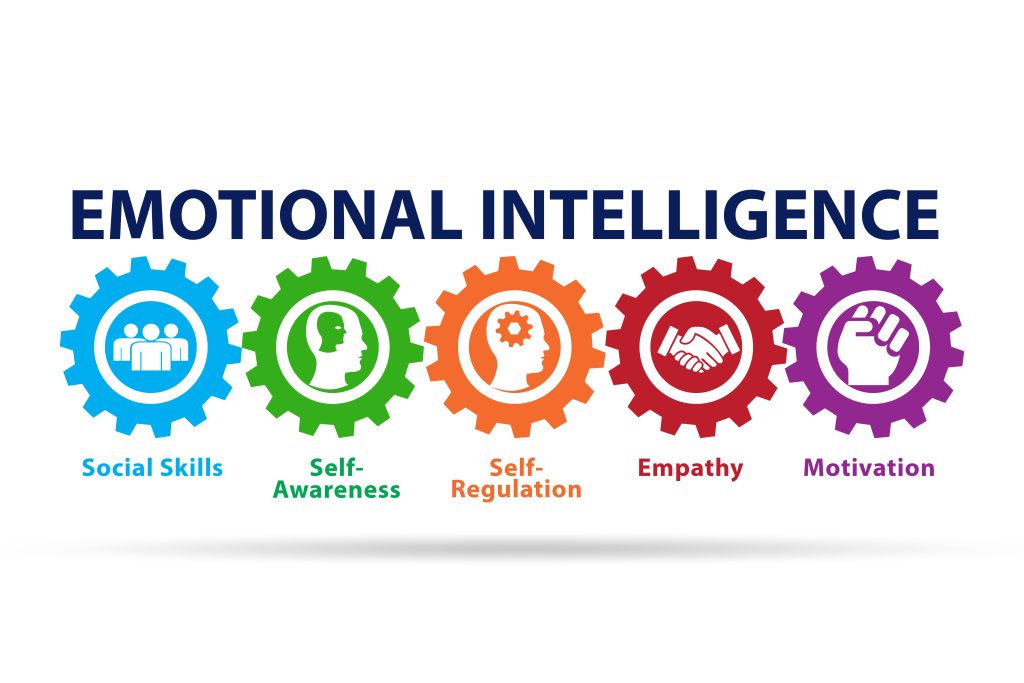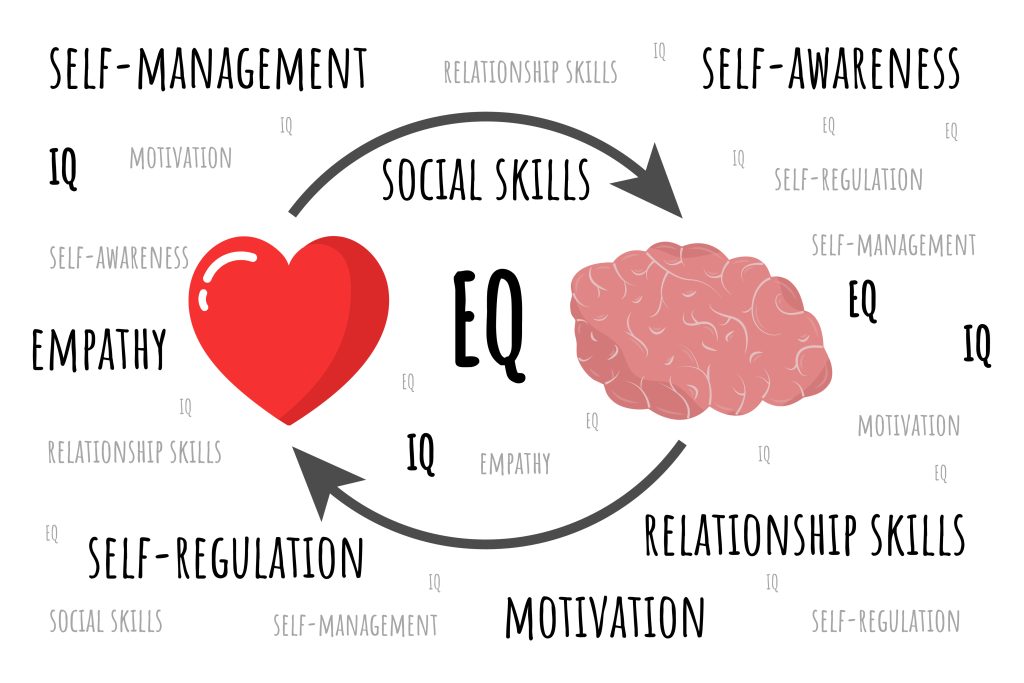Harnessing the Power of Emotional Intelligence in Leadership
In today’s rapidly evolving business landscape, more than just the traditional leadership qualities, such as strategic thinking and technical expertise, which are still crucial, are required. Modern leaders increasingly recognise the value of Emotional Intelligence (EI) as a critical component in effective leadership. This article explores how developing self-awareness, empathy, and social skills can transform your leadership approach and foster a positive organisational culture.
Understanding Emotional Intelligence
Emotional Intelligence, popularised by psychologist Daniel Goleman, refers to the ability to understand and manage one’s own emotions and recognise and influence the feelings of others. Goleman identifies five key components of EI: self-awareness, self-regulation, motivation, empathy, and social skills. Leaders who cultivate these attributes are better equipped to navigate the complexities of human relationships in the workplace, leading to more cohesive teams and improved organisational performance.
The Components of Emotional Intelligence
- Self-Awareness: This is the foundation of EI. Self-aware leaders have a deep understanding of their own emotions, strengths, weaknesses, and values. They are honest with themselves and others, which builds trust and respect among team members. Self-awareness also allows leaders to remain calm and composed under pressure, making thoughtful decisions without being swayed by emotional impulses.
- Self-Regulation: Leaders with high self-regulation can control their emotions and impulses. They remain calm and collected, even in challenging situations, and can respond to conflicts constructively. This sets a positive example for their team and creates a stable and predictable environment where employees feel safe and supported.
- Motivation: Emotionally intelligent leaders are driven by an intrinsic desire to achieve goals and improve. They are passionate and committed, inspiring their team’s exact level of dedication. This inherent motivation often leads to greater resilience and a positive attitude, even in the face of setbacks.
- Empathy: Empathy is the ability to understand and share the feelings of others. Empathetic leaders can put themselves in their employees’ shoes, understanding their needs, concerns, and motivations. This fosters a supportive work environment where employees feel valued and understood, leading to increased loyalty and engagement.
- Social Skills: Effective communication and relationship-building are at the heart of social skills. Leaders with strong social skills can resolve conflicts, build strong relationships, and foster a collaborative team environment. They are adept at managing change and can influence and inspire others to achieve common goals.

The Impact of Emotional Intelligence on Leadership
Improved Team Performance
Leaders who harness the power of EI can create an environment where employees feel valued, understood, and motivated. This leads to increased job satisfaction and productivity. Teams led by emotionally intelligent leaders are often more cohesive, communicate better, and are more adaptable to change. The potential for your team’s performance to improve under your emotionally intelligent leadership is immense, offering a bright and promising future for your organisation.
Enhanced Organisational Culture
A leader’s behaviour sets the tone for the entire organisation. Leaders can cultivate a positive organisational culture by demonstrating empathy, self-awareness, and strong social skills. This culture is characterised by mutual respect, open communication, and a shared commitment to the organisation’s goals. Such an environment attracts and retains top talent, reducing turnover and associated costs.
Better Decision-Making
Emotionally intelligent leaders are better equipped to make balanced decisions. They consider the emotional impact of their decisions on employees and stakeholders, leading to more thoughtful and effective outcomes. Their ability to manage stress and remain calm under pressure also ensures negative emotions do not cloud their decision-making process.
Conflict Resolution
Conflicts are inevitable in any organisation. However, leaders with high EI are not only adept at identifying the root causes of conflicts but also addressing them constructively. Their ability to empathise and communicate effectively helps to de-escalate tensions and find mutually beneficial solutions, maintaining harmony and productivity within the team. With your enhanced emotional intelligence, you can confidently navigate through conflicts, turning them into opportunities for growth and learning.

Developing Emotional Intelligence
The good news is that Emotional Intelligence can be developed and enhanced over time. Here are some actionable steps to boost your EI:
- Self-Reflection: Regularly reflect on your emotions, reactions, and decisions. Keep a journal to track your progress and identify patterns in your behaviour.
- Seek Feedback: Ask for feedback from colleagues, mentors, and employees about your emotional intelligence. Use this feedback to identify areas for improvement and work on them.
- Practice Mindfulness: Engage in mindfulness practices such as meditation, deep breathing, or yoga to enhance self-awareness and self-regulation.
- Develop Empathy: Make a conscious effort to understand the perspectives and emotions of others. Practice active listening and show genuine interest in your employees’ well-being.
- Improve Social Skills: Work on your verbal and non-verbal communication skills. Build strong relationships by being approachable, reliable, and supportive.
Emotional Intelligence is no longer a “nice-to-have” quality but a fundamental aspect of effective leadership. By developing self-awareness, empathy, and social skills, leaders can transform their approach, foster a positive organisational culture, and drive sustainable success. Embrace the power of EI, and watch your leadership capabilities soar, benefiting not only your personal growth but also the growth and prosperity of your entire organisation. This journey of developing emotional intelligence is a testament to your commitment to personal growth and professional excellence.
If you enjoyed this, you might like to subscribe to our newsletter, visit our YouTube Channel or Podcast or read our latest work.
